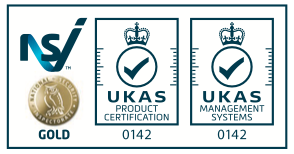|
Portable Appliance (PAT) Testing
Stirling Electrical Services are one of Scotland's leading Portable Appliance Testing specialists with over 25 years experience in the PAT Testing industry. Our high standard PAT Testing service is available to clients throughout Scotland at very competitive prices. You will find detailed information below about PAT testing and our service, as well as answers to frequently asked questions about PAT testing.
|
|
University of Stirling Students 2013-2014
|
Stirling Electrical Services have teamed up with The University of Stirling Residential Services Office to offer special discounted rates for the inspection and testing of portable electrical appliances that students bring with them from home into the University.
We carry out the inspection and testing of students own appliances brought into the halls of residence, both at The University of Stirling and at residences outwith the campus. We can even test the appliances at our premises in Fallin, if you prefer to bring them to us. More information can be found on our PAT Testing for Students page. |
|
Pricing
|
Portable Appliance Testing Price Guide
Pricing Bands We charge for PAT Testing in bands based on 15 items per band and also depending on the distance from our base in Stirling. Our pricing scale is competitive and is straightforward and takes into account the number of appliances to be inspected and tested from 1 to thousands of appliances. To obtain a competitive quote please use the Enquiry form on this web site, where we will respond within 24 hours with a quotation, alternatively telephone our office on 01786 813916 The per item charge includes:-
Repairs other than minor repairs will be reported to our client business manager. No larger repairs on appliances will be carried out on appliances without agreement and price agreement from the business manager. We can also provide all your premises test results on a computer disk and email. |
|
While You Wait Service
|
We also offer a while you wait PAT Testing service at our premises in Fallin. This service is only available for clients with 15 items or less and the client must drop off their appliances to us. If you would like to take advantage of this service please either phone our job booking team on 01786 813916 or book online to arrange a convenient time for your appliances to be dropped off at our premises (view our address & map ).
|
|
Documentation
|
We provide full inspection and testing documents which include test results and details about your tested appliances. These can be forwarded to you by post or email after the testing (see below for new policy)
Please Note - As from 28th May 2013 we have introduced a new policy regarding electrical reports/certificates. If the work/testing we do for you requires a report/certificate to be produced then these documents will only be forwarded to you when we have received cleared funds/payment for the work carried out. Unfortunately incidents of customers receiving reports/certificates and then not paying for the work has resulted in us introducing this new policy. Speak to our job booking team if you require anymore info on this new policy. |
|
Independent Advice & Links
|
Visit http://www.pat-testing.info for further independant information on PAT Testing and the relevant legal responsibilities.
|
Our trained job booking team will be happy to discuss your requirements.
Please phone on 01786 813916 or book or enquire online.
We aim to provide a professional and efficient service from the initial job enquiry through to job completion.
Please phone on 01786 813916 or book or enquire online.
We aim to provide a professional and efficient service from the initial job enquiry through to job completion.






